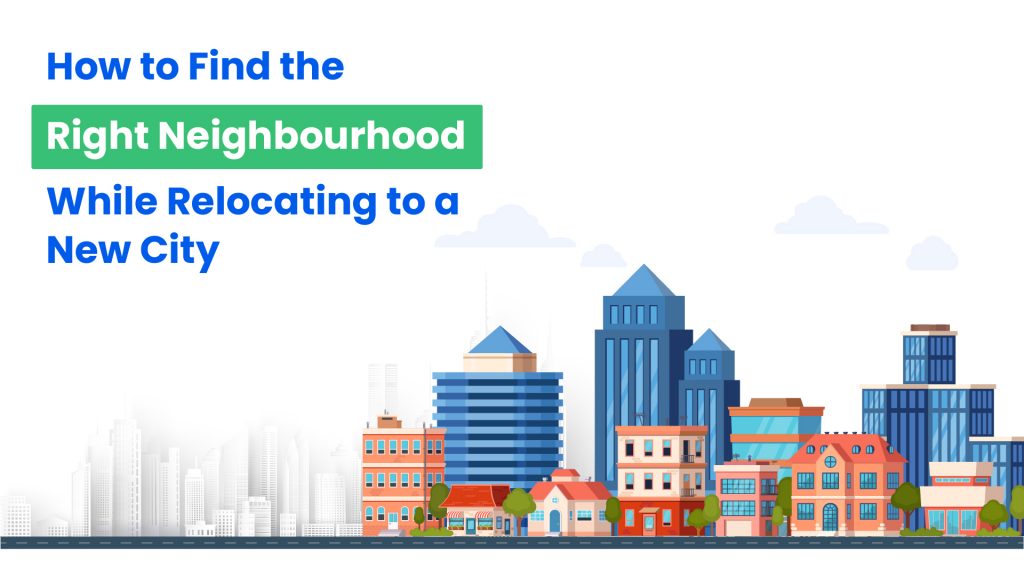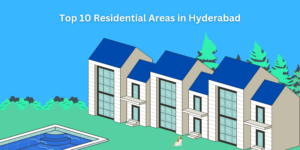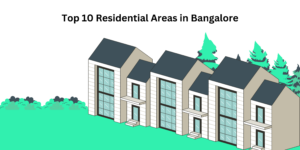“A bad neighbor is a misfortune as much as a good one is a great blessing” – Hesiod.
Finding the right neighbor might not be possible, but finding the right and good neighborhood is. All you need to know is what to look for and how to find it. Let’s go.

Why is choosing the right neighborhood important?
On a house hunt, you inspect the potential houses you can shift into. You check all the available facilities and amenities and cross-check them with your budget. Then why not do the same or even more to find the right neighborhood?
The place you choose to stay will play a big part ( consciously or unconsciously) in molding your personality. So the right neighborhood is the one that is affordable, accessible, and has a positive influence on you and some good neighbors too. (why not!!)
Things to consider when looking for a new place to live
1. Your Income
The most important determinant while choosing a neighborhood is to check whether you can afford it.
While assessing your affordability, take note of the vast run possibilities, risks, and vulnerabilities. Do remember that your motive is to sustain and grow in the locality( not to spend all your money and drive yourself to relocation)
2. Living expenses
Estimating the living expenses in a neighborhood will reflect whether you can afford it. This estimation should include rent, EMIs, taxes, maintenance fees, living expenses, fees (school, tuition ), and any other charges that could add to the bill. This bill estimate can help you classify the neighborhood as affordable, expensive, overrated, ed underrated, etc.
3. Motive
Ask yourself the motive for relocation.
- Are you on a job transfer?
- Do you want to have a short stay or settle down permanently?
- Are you looking for better facilities or better prices?
- Are you looking for a developed locality or a rising one?
- Are you moving out with your family or alone?
- Answering these questions will lead you toward a clear choice and narrow down your search.
4. Types of Houses
Check out the type of houses(apartments, independent houses, multistorey buildings, housing society) available in the locality. Knowing the type of house can filter down your choices if you are looking for a particular house.
5. Your Preferences
Keeping aside the practical side, you also need to define your preferences. Whether you prefer a quiet neighborhood, a buzzy fuzzy one, a close-knit community, or even a keep-it-to-themselves one, preferences can become the next quality( after affordability)to look for while finding a suitable neighborhood.
6. Amenities available
Parks, gyms, community centers, game centers, and libraries add to the quality of a neighborhood. But this point may raise a question: Why do I need to worry about amenities available in a neighborhood?
You don’t have to worry about amenities. But you will need them to be close to hang out and relax within your neighborhood. Plus, these can be good hangouts spots within your reach when someone comes over.
7. Public transport
Distance and availability of public transport are significant determinants. A neighborhood with a close reach of public transport can reduce your commute expenses. If a place has good public transport, you can be sure of excellent and affordable connectivity and lower traffic.
8. Proximity to work
You need to check out the distance between home and work commute. A long and tiring distance between the costs can tax you mentally and physically(coupled with heavy traffic).
9. Nearby schools
It is an essential lookout if you are relocating with your family. Finding neighborhoods close to good schools, college tuition centers, and educational centers is essential if you move in for a long time.
10. Crime Rates
Yes, check out the crime rates of a city or locality before moving in. IT would give you a clear picture of the neighborhood’s safety. It doesn’t imply you can predict every criminal case that may occur, but at the least, you can be prepared for it.
11. Electricity, water, and connections in the city
These are one of the basic facilities to look for in a neighborhood. You have to check on the water, electricity, and gas service providers, their service charges, and customer service. Imagine relocating to a neighborhood with fluctuating electricity, delayed gas cylinders, and water shortages(Not a good thing to expect). Hence, check them out before relocating.
12. Hospitals and medical care
When inspecting the neighborhood, look for the nearest healthcare centers and hospitals. It is imperative if you are moving in with a family of old parents and young children.
If you are receiving any medical care, check out if you can shift your fragment to a new neighborhood hospital or care center.
13. Grievance Redressal system
Before moving into a neighborhood, you need to know where to whom and how any complaints must be filed. You also need to know how your complaints will be resolved.
14. Pollution levels
It may sound unusual but do check out the pollution levels of the city you are planning to move in. What’s the use in moving to a city with lousy pollution levels which may affect your health?
15. Property prices and real estate
Regardless, if you are buying or renting a house while moving to a new place, check its property and real estate prices. It will help you decide whether it’s a settled or rising neighborhood. It can further help you in tax calculations.
16. Give a personal visit to the neighborhood
Pay attention to a personal visit to the neighborhood before moving in. Check out all the amenities, schools, hospitals, groceries, recreational centers, nearby transport options, etc. It would make your reason for your choice of relocation sufficient.
17. Do personal research
Turn out every stone(offline and online)to get a clear picture of the neighborhood. It’s like a tourist checks before visiting a place. Since your motive is relocation, the research about the locality needs to be better.
18. Find good neighbors
Suppose you want to delve deep into your research of neighbors and people around the locality. It would give you a better and more personal perspective on the neighborhood.
Now that you have found the right neighborhood to move in, you can use these tips to settle down and blend in positively in your new environment. Join the community center, sports club, or any local membership club. It will introduce you to new people in your area. If you wish to take it further, making a formal visit or a Housewarming event can help you break the ice. If you wish to take your time with things, choose to know the neighborhood slowly as time progresses.
19. Social Culture
Last but not least, many people feel having a social life is crucial when relocating to a city. People frequently make choices that draw them nearer to one region than the other, whether staying close to bars, cafes, coffee shops, theatres, and elevated clothing stores or just residing in a neighborhood with other friends.
When thinking about social life, it’s crucial to remember that everyone’s understanding of the term will be different. There’s also the question of the amount of time one wants to devote to social life. Living in the city is a need for some people, while others may adapt to staying in the suburbs or far-flung areas while still enjoying access to cultural events sometimes
Final Takeaway
Overall, conducting your study before moving to a new place is crucial. Not only will being acquainted with the region benefit you when you move there, but it will also enable you to decide in advance if it is the ideal location for you. When relocating, several factors are at play, some of which are more significant to each other than others. Even though these are some basic pointers to keep in mind while researching your potential new house, be sure to consider your priorities!
It doesn’t matter how but the point is to thrive and bond in your new surroundings.
A neighborhood contributes unknowingly to your persona. Hence, choose the right one for you carefully. And when you have chosen, nothing can stop you from having a Happy Relocation!


